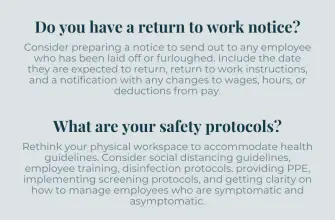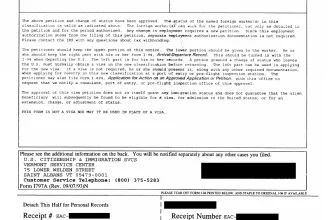A number of factors, including workload, deadlines, poor management, and personal issues, can contribute to workplace stress. After an employee is signed off work with stress, the employer provides them with a recovery period for their stress-related symptoms before they return to work.
Employers have a legal obligation to ensure the safety and health of their employees, including their mental well-being.
In this article, I will provide a detailed overview of the effects of stress on employees at work and employers’ legal duties to assist their employees. Moreover, I will present suggestions for developing a positive workplace environment and tactics for preventing and managing stress in the workplace.
Impact of Workplace Stress on Employees

Workplace stress can have a heavy impact on employees, both physically and mentally. Stress can cause physical symptoms such as headaches, weakness, digestive issues, and mental health issues like anxiety and depression.
These symptoms can lead to decreased productivity, more absenteeism, and poor performance, all of which can have a negative impact on the employee’s career as well as the company.
If not addressed timely, workplace stress can lead to a state of exhaustion caused by long exposure to stress. These symptoms can make it difficult for employees to keep up with the demands of their job, leading to feelings of detachment and decreased job satisfaction. These cases can result in long-term disability and the need for extended time off work in extreme cases.
Employers must establish an atmosphere at work that supports employees’ mental health and well-being. Employers can create a happy and successful workplace where everyone benefits by prioritising their employees’ mental health and well-being.
What Is The Average Time Off I Can Get Due To Stress And Anxiety
One of the first questions that come to mind is how long the worker can be absent from work due to stress or anxiety. Well, this depends on different factors, such as the employee’s particular reasons and the employer’s regulations. Several countries have laws that require employers to provide sick or other paid leave to employees struggling with mental health issues, including anxiety and stress, for up to 2 or 3 weeks.
In the United Kingdom, employees have the right to take time off work due to sickness, and this includes mental health problems like anxiety and stress. How long the employee will be given off work will be determined by the policies of the employer and the terms of the employee’s employment contract. Employers may grant a certain number of sick days per year or allow staff to take time off as necessary for medical reasons.
Disability regulations may entitle an employee to additional time off or other forms of support if their stress or anxiety is severe and long-lasting. It’s worth mentioning this fact. Employers must make suitable changes for workers with disabilities, which could include extending time off or changing job responsibilities to lower stress and anxiety levels.
In order to understand their rights for sick leave or disability alternatives, employees must go through their employment contracts and talk through their options with their employer or a human resources representative.
Can An Employee dismiss due to stress.

An employer would violate employment laws that protect employees with disabilities, including those related to mental health, by firing a worker solely for missing work due to stress. Firing an employee for stress-related sickness may be regarded as unfair.
Employers must provide appropriate accommodations and suitable adjustments as necessary to ensure their workers’ mental health and well-being.
However, if the employee’s absence due to stress is causing significant difficulties for the employer and the company altogether, they may have the right to dismiss the employee based on their capability to perform the job.
In such cases, the employer must follow a fair and reasonable process, which may include seeking medical advice, exploring alternative ways of supporting the employee, and giving adequate notice.
Remember that each situation is unique, and employers should explore all other options before dismissing an employee based on their mental and physical capability.
Before taking any action that may be regarded as unfair, employers should consult with legal professionals. Employers have a legal responsibility to care for their employees’ well-being, including checking in on those absent due to mental health conditions like stress. Employers must handle these check-ins carefully and with consideration for the employee’s privacy.
Check our Guide about: Employee Relocation Rights
Should Employers Contact Employees Who Are Absent Due To Stress
According to the law, employers can contact employees during their absence due to work-related stress. In fact, employees may even expect some communication from their employer to keep them from feeling isolated.
The objective of the contact should be to offer support, collect information about the employee’s condition and requirements, and explore options for their return to work, if appropriate. Employers should avoid pressuring workers to return to the office before they are ready, as the person is clearly going through a tough time.
Employers must respect an employee’s right to take time off for mental health reasons and make the necessary modifications to make the employee’s return to work easier. If the employee is not ready to come back or requires more time off, the employer should show gratitude and work with the employee to find a reasonable solution.
Developing a Supportive Work Environment

Creating a supportive work environment is essential for managing stress-related sickness absence and promoting employee wellbeing.
Employers can establish a culture of open communication by promoting conversations about mental health and well-being, conducting mental health training for managers and employees, and providing confidential counselling services through an employee assistance programme.
Offering flexible work schedules, such as part-time or remote employment, can help people maintain a healthy work-life balance. This can help employees manage their workload and personal responsibilities while reducing the risk of burnout and stress-related illnesses.
Employers should also consider providing opportunities for physical exercise, healthy eating options, and stress-reducing activities like yoga or mindfulness sessions. Allowing employees to take regular breaks and providing a comfortable and safe work environment can also help reduce workplace tension and promote employee well-being.
Creating a supportive work environment can help reduce stress-related sickness absence and promote employee wellbeing. This benefits everyone involved and makes for a more effective, happy, and healthy workforce.
Team building and social activities are effective ways to create a supportive work environment. Employers can establish a sense of community and support in the workplace by encouraging positive relationships among employees.
Employers can facilitate team-building activities by organising group outings or workshops to help employees develop better communication skills and problem-solving abilities. These activities also provide an opportunity for employees to build strong relationships with their coworkers.
Similarly, social activities like after-work events, team lunches, and holiday parties can boost employee morale and job satisfaction by allowing them to socialise and develop friendships outside of work.
However, employers must ensure that these events are inclusive and accessible to all employees and do not intentionally exclude anyone to avoid creating additional stressors.
Legal Issues Of Stress-Related Absence
UK employment law protects employees who miss work due to stress or other mental health issues from discrimination and unfair treatment. However, mishandling stress-related sick days can lead to legal issues for employers.
Employers should avoid taking any actions or making any decisions that workers who are absent from work due to stress-induced illnesses could interpret as unfair or discriminatory.
Legally speaking, employers must also give workers a secure and healthy workplace. This includes managing work-related stressors and assisting employees who are absent due to stress-related illness. The employer may face legal action if they cause an employee’s stress-related sickness through work-related factors such as workload, management, or workplace harassment.
Furthermore, the 2010 Equality Act requires employers to make reasonable accommodations for employees with disabilities, including both mental and physical health conditions.
Suppose an employee’s stress-related illness is classified as a disability under the Equality Act. In that case, the employer must make reasonable accommodations or adjustments, such as flexible working arrangements, adjustments to the employee’s job demands, or access to counselling or other support services.
Establishing Policies for Managing Stress
Employers should establish clear policies and procedures for managing stress-related sickness absence and provide mental health awareness and support training to managers and employees to reduce legal risks.
This should include guidelines for managing interviews of employees returning to work, managing workload and work-related stressors, and promoting employee wellbeing.
Employers should also have a plan for managing stressful circumstances and promoting employee mental health. This can include providing access to employee assistance programs, flexible working arrangements, and other reasonable adjustments as needed.
Employers can reduce legal risks and create a positive work environment by demonstrating their commitment to employee well-being and mental health.
Conclusion
Stress caused in the workplace could have severe mental and physical impacts on a person. Managing an employee who is off work due to stress can also be a complex and challenging task for employers.
Employers can reduce the risk of employee absences and enhance overall employee well-being and productivity by adopting an active approach to preventing and managing stress in the workplace.
To accomplish this, companies can provide a positive work environment, encourage social and team-building activities, and grant access to tools such as counseling or job-related health services.
Employers must also be aware of the potential legal consequences of stress-related sickness absence and comply with relevant laws. Employers can support their employees’ mental health and well-being and cultivate a positive workplace culture by taking an understanding and positive approach.
Frequently Asked Questions (FAQs)
Employers have the right to fire someone if his or her illness is causing a disruption in the workplace. Employers should exercise caution when thinking about letting go of a worker who is on stress-related sick leave.
Proper procedures should be followed to avoid the risk of an unfair dismissal claim. Employers should prioritise supporting their employees in such situations by providing reasonable accommodations, such as reducing their workload or offering counselling services, rather than straight up firing them.
It should be a priority for employers to reach out to employees to provide support and discuss their return to work; they should be careful not to pressure employees to return before they are ready.
Employers must also ensure that they respect employees’ privacy rights and do not disclose confidential information to co-workers or third parties without obtaining the employee’s consent.
Employers need to establish a positive and supportive work environment to prevent stress-related sickness absence. This can be achieved by offering training on stress management, promoting team building and social activities, and providing employee assistance programs.
Employers should also look out for signs of stress among employees and act quickly to address any concerns.
Legal risks associated with stress-related sickness absence include potential claims of disability discrimination or unfair dismissal, as well as the risk of breaching health and safety regulations.
Employers need to take steps to prevent and manage stress in the workplace by providing support to employees, evaluating risks, and ensuring that they comply with the applicable laws.








